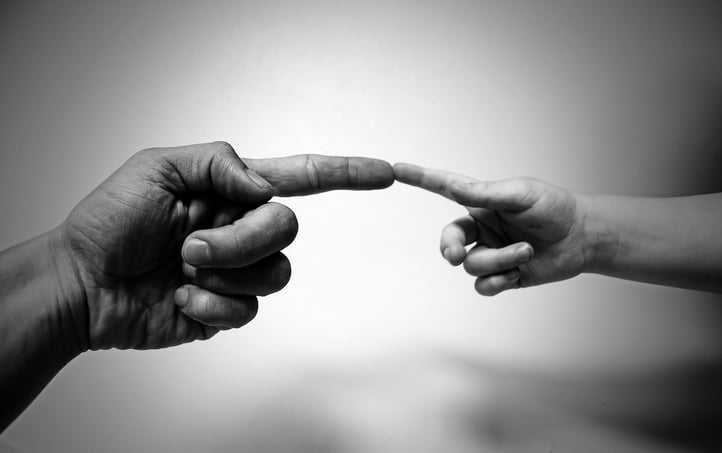
Right around the time the Syrian refugee crisis was at the height of its media coverage in the US, I noticed a familiar kind of backlash on my newsfeed. Amidst the photos showing desperate throngs of people escaping with only their lives, between the articles imploring me to donate or explaining how I could help Syrian refugees, I saw another kind of plea: "Don't let them in."
I wasn't surprised by the politicians who were quick to go on record, justifying all the reasons the US could not or should not extend offers of asylum. However, I was a bit taken aback by the similarly swift response by several of my friends on social media. Suddenly memes were appearing on my feed, with messages such as "No Syrian Refugees Until ALL of Our Veterans are Off the Street. Hit 'LIKE/SHARE' if You Agree!"
In no time at all, I was reminded by multiple people of the pressing issues that "should" take precedence over the refugee crisis. Homelessness, unemployment, the war on terror—all of these were suggested as reasons why a person was simply unable to care about the thousands of uprooted families fleeing violence.
One of the enduring concepts of Facing History is that of the Universe of Obligation. Sociologist Helen Fein describes this as the circle of individuals and groups "toward whom obligations are owed, to whom rules apply, and whose injuries call for amends."
The argument to prioritize the suffering of some over others has really made me wonder, is there a "Compassion Cap"? Does showing concern for one issue leave a person unable to care about another matter? Is our “Universe of Obligation” a series of tightly drawn circles or an expansive space that includes all of humanity? When I’ve discussed this concept with my students, another way I’ve inquired into who is inside their universe of obligation is to simply ask, “Whose pain moves us to action?”
But feeling moved, or wanting, or knowing how to act are not the same. Students of history can get buried by the statistics presented in textbooks. Six million Jews killed in the Holocaust is so abstract to most high schoolers. Many voice sentiments along the lines of “That’s horrible, but I don’t know what I could have done about it.” It feels strikingly similar to the way some people in my news feed have reacted to the refugee crisis. “Gee, that’s terrible, but what does that have to do with me? Don’t we have enough problems to worry about already?”
When someone feels that the plight of others is too expansive and too overwhelming, how do we combat the resulting "psychic numbing" that manifests as lack of caring and inaction? A great resource that gets at the heart of this question is "The Reporter."
In "The Reporter," Nicholas Kristof reminds us that what moves us is not the data, not the numbers, but the single story. The multitude of cries from the suffering masses is somehow not heard as “loudly” as the sound of a solitary voice. What allows us to connect with others and their pain and their need for our help? Their individuality. It seems to be the thing that we recognize most in ourselves. At the core we see ourselves as unique and distinct beings, perhaps our deepest stirrings of empathy occur when we connect to another person on the individual level.
So is there is a “compassion cap”—a limit where our hearts are so full and our empathy so spent that we simply cannot give one more drop of caring to another person or another cause? Call me an idealist, but I don’t believe there is. When feeling overwhelmed with the magnitude of human sorrow, the answer for me is never to pan back, but to narrow in. Find the one person you can help, and start there.
What's your universe of obligation? Check out four different contexts for understanding the Universe of Obligation:
- Our revised digital version of Holocaust and Human Behavior
- Our unit, Universal Declaration of Human Rights
- Our lesson, Understanding the Global Refugee Crisis
- Our lesson, Defining Community: The Universe of Obligation
This blog was originally published on October 24 on the Learn+Teach+Share blog, Facing History's blog for Southern California.

